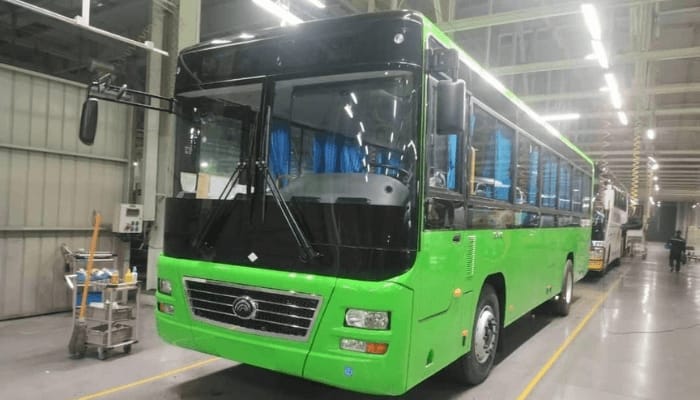Amid ongoing debates surrounding the petrol subsidy in Nigeria, a new player has emerged on the transportation horizon – Compressed Natural Gas (CNG) platform. With its potential to revolutionize the way Nigerians commute, this eco-friendly alternative has gained significant attention as the nation grapples with the complexities of the petrol subsidy issue.
The continuous fluctuations in global oil prices and the financial strain of subsidizing petrol have prompted a critical evaluation of the country’s transportation landscape. In this context, the adoption of CNG as an alternative fuel source has gained traction due to its multiple advantages.
CNG, a cleaner and more cost-effective alternative to traditional petrol, is a compressed form of natural gas that can power vehicles efficiently. One of the primary advantages of CNG is its reduced carbon emissions, which aligns with Nigeria’s commitment to environmental sustainability and climate action.
“The potential of CNG as a game-changer in the transportation sector cannot be overlooked,” remarked Nkiru Chime, the Acting MD/CEO of The Infrastructure Bank (TIB) in a previous interview. “Not only does it offer a solution to the environmental challenges posed by petrol combustion, but it also has the potential to alleviate the financial strain caused by subsidizing petrol prices.”
In recent months, discussions surrounding the removal of petrol subsidies have sparked nationwide debates and concerns about the impact on citizens’ daily lives. The rising costs of maintaining these subsidies have put immense pressure on Nigeria’s economy, making the search for sustainable alternatives more urgent.
Drawing from our expertise in managing the Mass Transit Initiative across the transport infrastructure value chain under the Move Nigeria Scheme (MNS), our experience stands as evidence. Despite the complications arising from loan defaulters perceiving the funds as government handouts, the scheme has showcased a commendable average collection rate exceeding 72%. Presently, a cumulative amount of N43.7 billion, surpasses the fund’s size by 174%, with over 4,500 vehicles disbursed since 2010. This accomplishment underscores the effectiveness of our comprehensive risk management approaches to the fund and highlights our adeptness in the Mass Transit Business within the bank.
The move towards CNG as a mainstream fuel option not only aligns with global trends but also resonates with the principles of local resource utilization and energy diversification. Apart from its environmental benefits, CNG is significantly cheaper than petrol, offering potential long-term savings for consumers and businesses.
However, challenges remain. The transition to CNG requires substantial investment in infrastructure, including refuelling stations and vehicle conversion facilities. Additionally, there is a need for a comprehensive regulatory framework to govern the integration of CNG into the existing transportation ecosystem.
As Nigeria navigates the intricate pathway of phasing out petrol subsidies, the emergence of the CNG platform presents a ray of hope. With its potential to reshape transportation dynamics, mitigate environmental impact, and provide economic relief, CNG stands as a formidable contender in the quest for a sustainable and prosperous future for Nigeria.
The journey towards embracing CNG as a mainstream transportation solution is underway, with its success hinging on a collaborative effort from government bodies, private sector stakeholders, and the public. As the nation’s transportation narrative takes an eco-friendly turn, the CNG platform may well emerge as a symbol of progress, sustainability, and resilience.
The Presidential Compressed Natural Gas Initiative (PCNGI) is in furtherance of President Tinubu’s commitment to easing the impact of fuel subsidy removal on Nigerians by reducing energy costs. The initiative aims to introduce more than 11,500 new CNG-enabled vehicles and 55,000 CNG conversion kits for current PMS-dependent vehicles. This initiative also aligns with the presidential directive by strengthening domestic manufacturing, and local assembly, and generating a significant number of jobs.
In line with this effort, TIB is strategically positioned to play an essential role by channelling its expertise and resources towards the expansion of CNG infrastructure. In doing so, TIB actively contributes to advancing the achievements of the PCNGI.










